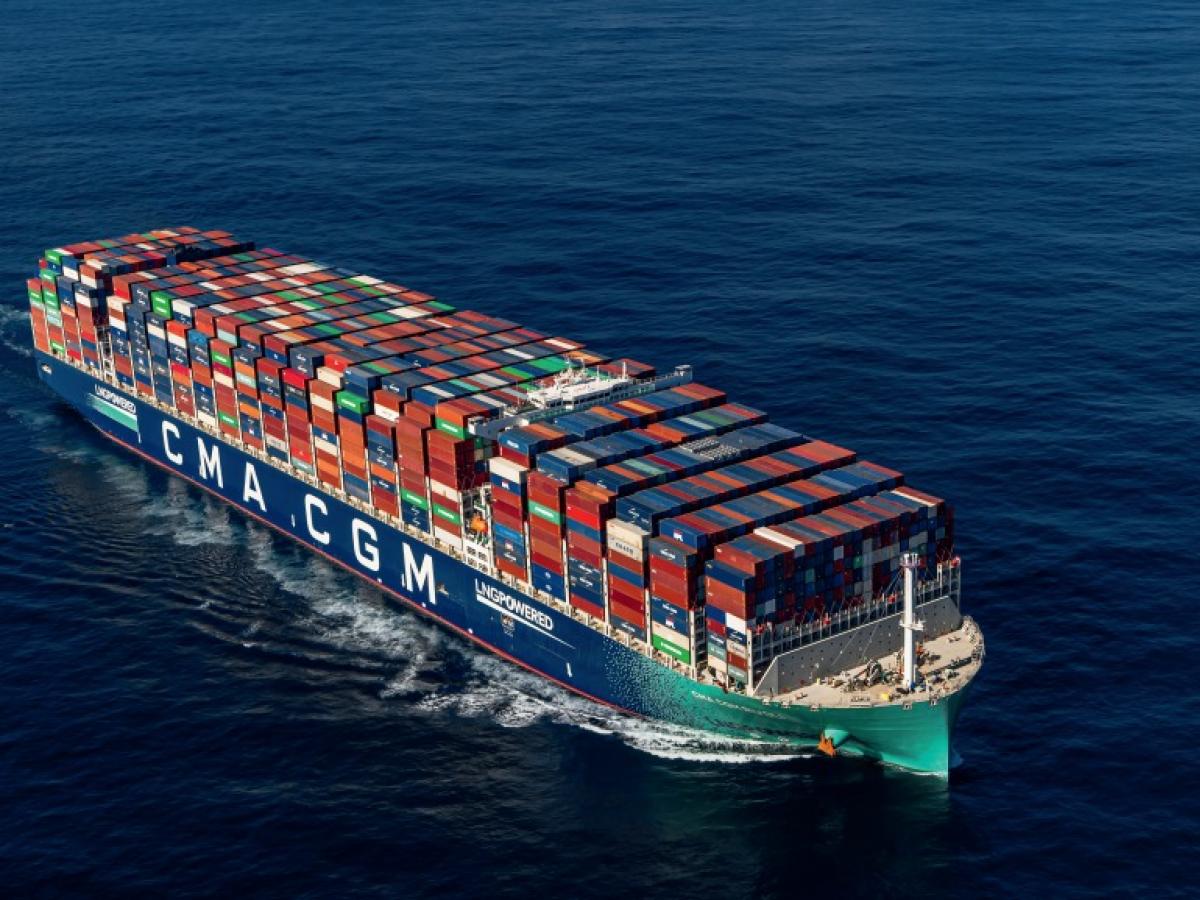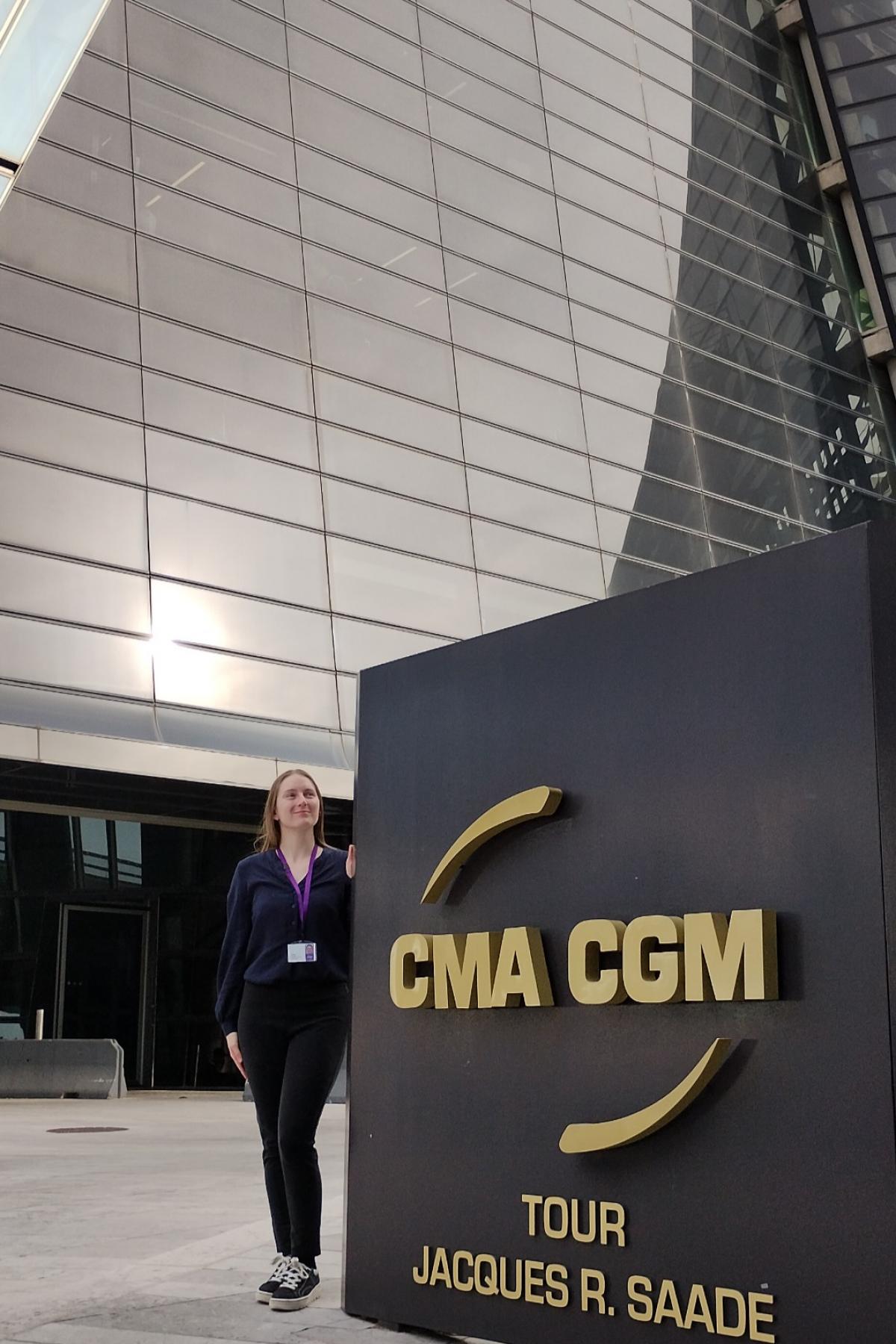A new device, currently being designed by a University of Adelaide PhD candidate, could help to close a loophole currently being exploited by illegal wildlife traffickers.

A CMA CGM ship at sea. Picture courtesy of CMA CGM.
More than 90 per cent of illegal wildlife products are transported around the world via shipping routes, but fewer than two per cent of all shipping containers are physically inspected.
"The hunting of wild animals to satiate the demand for the illegal wildlife trade has driven many species to the brink of extinction," said the University of Adelaide's Georgia Moloney, from the School of Animal and Veterinary Sciences, who designed the 3D-printed device.
"Not only does the trade threaten biodiversity and species conservation, but it is also a concern for public health, as direct contact between wild animals and humans enables zoonoses and novel infectious diseases to emerge and spread."
The device, which is currently in the prototype phase, has also captured the interest of the broader research community, with Georgia producing a video explaining her project that took out first place in the University of Adelaide 2023 Visualise Your Thesis competition.
"Our device will attach to and extract air from the vent of a shipping container, capturing samples which can then be analysed to detect the presence of wildlife products," said Georgia.
To ensure a targeted approach for the sample collection process, Georgia also hopes to create an algorithm that will identify shipping containers and routes most at risk of exploitation by illegal wildlife traffickers.
"The combination of the algorithm and detection tool will provide customs and port authorities with increased confidence to initiate a full investigation where a container is likely to contain illegal wildlife products, and therefore assist with providing evidence for prosecution as required," said Georgia.

Georgia Moloney at CMA CGM HQ in Versaille. Picture courtesy Georgia Moloney.
Though the project is in an early stage, Georgia has secured a partnership with global shipping and logistics company CMA CGM to help develop the detection device.
"Working with CMA CGM gives us a huge advantage in this space. Cooperation from the shipping company itself means we can access their data and resources and therefore design and implement a detection tool more effectively," said Georgia.
She will now take her explainer video to the next stage of Visualise Your Thesis - the international competition, hosted by the University of Melbourne - where she will compete against representatives from more than 20 universities.
Visualise Your Thesis participants are judged on how well their one-minute video explains their concept, the visual impact of the video, as well as how many views it receives between 2-6 October 2023.
For Georgia, the competition is a way of bringing much needed attention to the important issue of the illegal wildlife trade.
"I have always been particularly interested in animal welfare and the illegal wildlife trade, ever since learning about it at a young age, and I'm passionate about wanting to understand the motivations behind the illegal wildlife trade and the impact it has had on species populations and the environment," said Georgia.
"I hope that my submission will raise awareness for the scale and consequences of the illegal wildlife trade, which is undoubtedly a serious issue that warrants further investigation."
To view Georgia's Visualise Your Thesis video, see here.






